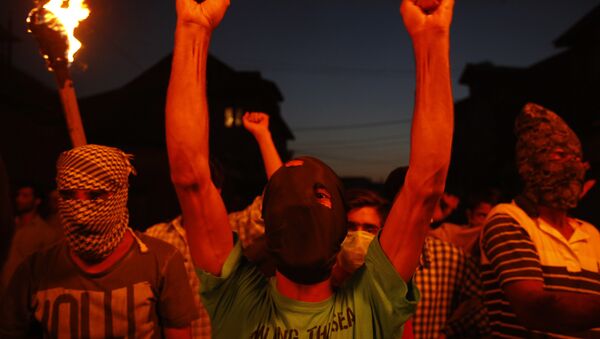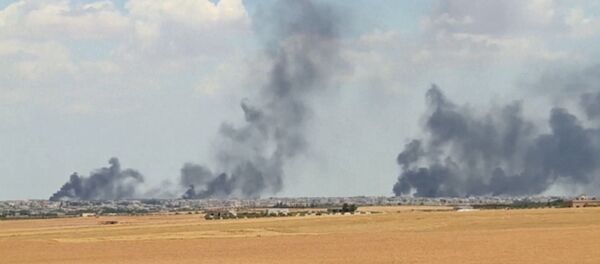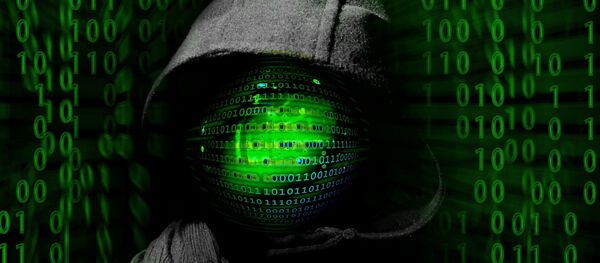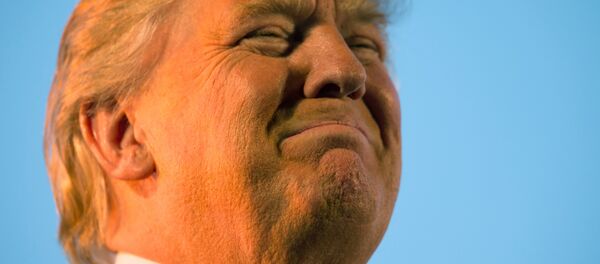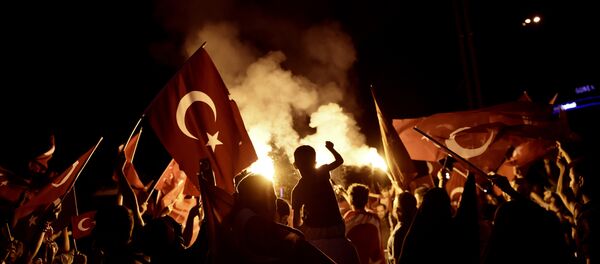On Thursday, India alleged that separatist protests in Kashmir during the so-called observance of "Kashmir’s Accession to Pakistan Day" or "Black Day" were conducted by internationally recognized terrorist organizations.
An official statement issued by the Indian Ministry of External Affairs said, "We have seen reports about rallies, events and statements related to Jammu and Kashmir over the last two days. We have also noted that the events were led by UN-designated terrorists."
In the statement, New Delhi alleged that those behind the protests were the same groups that had "protested the elimination of dreaded terrorists including Osama bin Laden and Taliban leader Akhtar Mansour in Pakistan."
India criticized the government of its arch-rival Pakistan for providing aid and support to the organizations behind the protests, and to terrorism crossing India’s borders.
"We once again ask Pakistan to stop inciting and supporting violence and terrorism in any part of our country and refrain from its deplorable meddling in our internal affairs in any manner."
New Delhi also called on Islamabad to stop "misleading" the international community, and Kashmiris, through military exercises, territorial claims, and threats to engage in conflict over the long-contested region.
Madhu Kishwar (@madhukishwar) July 20, 2016
"In view of the threats of marches and protests at the High Commission of India in Islamabad, we ask the Government of Pakistan to ensure full safety and security of the High Commission, all its officials and their families in Pakistan," according to the statement.
On Wednesday, Pakistan’s Prime Minister Nawaz Sharif called on the people of Kashmir to observe Black Day, expressing solidarity with "Kashmiris facing atrocities at the hands of Indian forces."
Indian security forces removed dozens of black and Pakistani flags in Kashmir, hoisted by residents who heeded Nawaz Sharif’s call, leaving Modi’s government to suspect renewed conflict in the war-torn region.
In response, Nawaz Sharif said, "India should realize that when people decide to do something, the weapons cannot stop their way."
"Kashmir cannot be accepted as an internal matter of India as it has been declared a disputed territory by the United Nations," claimed Pakistan’s Prime Minister, challenging New Delhi’s claim that Kashmir belongs to India simply because they occupy the territory.
The conflict between the rival nuclear powers dates back to the bloody Partition of India on August 15, 1947, that broke into internecine struggle between Hindus and Sikhs on one side, and Muslims on the other.
That partition, led by British Viceroy to India Lord Louis Mountbatten, a friend of modern India’s founder Jawaharlal Nehru, saw Muslim majorities split between West and East Pakistan (now Bangladesh) on each side of India, slicing the country at its birth into two pieces over a thousand miles apart. Resource rich Jammu and Kashmir is the only Muslim-majority population in India, with 68.3 percent of the state population practicing Islam, compared to 28.4 percent following Hinduism, based on a 2011 census.
The people of Kashmir have long considered Pakistanis to be countrymen, and view themselves as being under occupation. India’s claim to the territory is based both on the original map, drawn in 1947 by Mountbatten, and New Delhi’s military presence.
The two countries have long battled over the territory, turning the region into a closely watched powder keg.
Recent mass protests, the worst in several years, has left 44 dead and hundreds of others injured.

